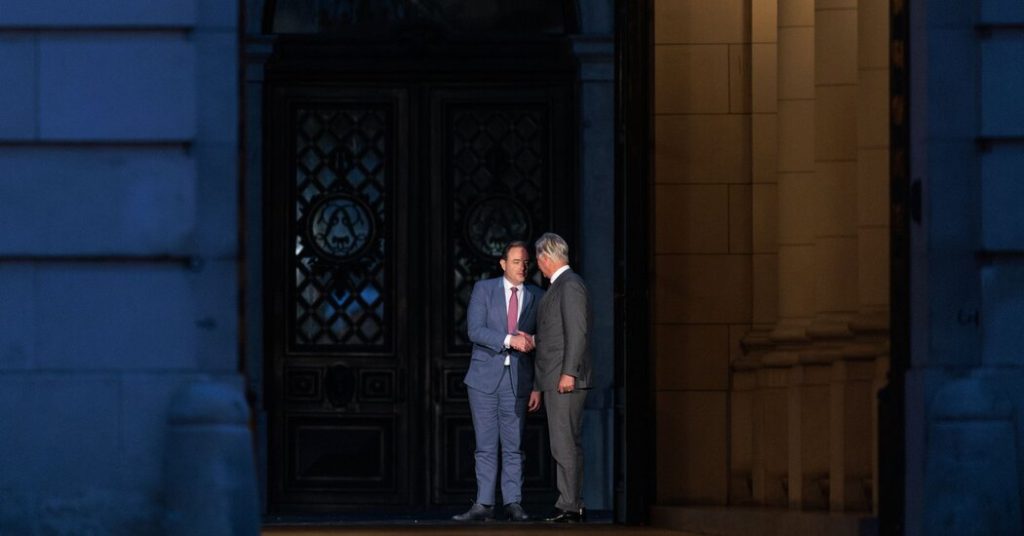Let’s talk about Belgium, a country often overshadowed by its role as host to the European Union and NATO, but one that has been wrestling with some very human, relatable struggles. Just this Friday, after seven long months of political back-and-forth, Belgium reached an agreement to form a new coalition government. The announcement was made by the nation’s monarchy, bringing an end to yet another chapter of the country’s notoriously protracted government-building process. Let’s dive into the story and untangle what this really means for Belgium—and why it matters.
### A Familiar Political Drama
Belgium is no stranger to lengthy political deadlocks. In fact, the country holds the world record for the longest period without a functioning government—541 days back in 2010-2011. You might think that’s an anomaly, but really, it speaks to a broader challenge Belgium faces: bridging the deep divisions between its Dutch-speaking, right-leaning Flanders in the north and its French-speaking, left-leaning Wallonia in the south. These linguistic and ideological divides make forming a government a task that’s less about quick wins and more about painstaking negotiation.
But this time, the impasse wasn’t just about regional differences. The urgency to tackle the country’s rising budget deficit added an extra layer of complexity to the already fragmented political scene. It’s not just Belgium, either; across Europe, nations are grappling with aging populations and accompanying financial strain. Pensions and healthcare are at the heart of the matter, and Belgium’s coalition talks were no exception.
### Enter Bart De Wever and His Five-Party Coalition
At the center of this narrative is Bart De Wever, leader of the New Flemish Alliance, a conservative Flemish nationalist party that took home the largest share of votes during the June elections—17 percent. That may not sound like much, but in Belgium’s fragmented political landscape, it was enough to give him the reins in building a new government. His victory also came as a blow to a far-right separatist party, signaling a cautious preference among voters for a more moderate yet conservative approach.
What does this new government look like? Well, it’s a five-party coalition that’s as ideologically diverse as Belgium itself. Alongside Mr. De Wever’s party, there’s the liberal Reformist Movement and the centrist Les Engagés, both Francophone. Joining them are the Flemish socialist party Vooruit (which means “Forward”) and another Flemish party, the Christian Democratic and Flemish. This eclectic mix of parties have navigated weeks of intense negotiations over key issues like pension reforms, healthcare costs, migration, and tax policies.
The coalition government has reportedly taken a tough stance on migration and is eyeing significant cuts to social spending. Yet, details on the newly-minted deal remain sparse. While it’s clear some budget cuts are on the horizon, along with a likely increase in military spending and certain tax adjustments, some reports suggest popular spending programs might survive the axe. Maxime Prévot, leader of Les Engagés, posted on social media that the agreement is “a reform agreement for the future” that aims to stabilize pensions while preserving their payment for both current and future generations. That reassurance may resonate, but the broader question of how Belgium will balance social welfare with fiscal discipline looms large.
### The Fiscal Elephant in the Room
Let’s get to the heart of the issue: Belgium’s budget deficit. The country’s deficit stood at approximately 4.6 percent of its gross domestic product last year, a figure that’s unsettling not just for Belgian leaders but for the European Union as well. With new EU fiscal rules in place, the pressure to rein in costs has intensified. If Belgium doesn’t submit a credible budget plan to the EU on time, it faces the possibility of being put on a strict four-year path to fiscal adjustment, potentially accompanied by penalties and fines.
The negotiations around forming this government didn’t just pull ideological threads; they tied into the broader tug-of-war between maintaining social safety nets and meeting fiscal demands. It’s a dilemma that will strike a chord with voters elsewhere in Europe, many of whom are living through similar debates. Just look at France, where recent pension reform proposals led to widespread protests. Belgium, like its neighbor, is wrestling with how to balance the cherished aspects of its social fabric against the economic realities of an aging population.
### Pensions, Protests, and Paychecks
One of the most sensitive topics throughout the coalition talks—both in the boardrooms and on the streets—was pensions. Proposed reforms aimed at curbing the nation’s pension spending have sparked protests from trade unions, teachers, military personnel, and other groups in recent weeks. As details of potential measures were leaked to the public, tempers flared.
Then there’s Belgium’s system of automatic wage adjustments tied to inflation. On the one hand, it’s a safeguard that helps workers maintain purchasing power during tough economic times. But on the other hand, it’s also a hefty cost for the government. Some negotiators wanted to curb these adjustments to ease public spending and improve Belgium’s competitiveness. However, centrist and left-leaning parties were understandably wary of how such changes would affect the average worker. This wage system became a flashpoint in negotiations, highlighting the difficult trade-offs leaders are grappling with.
Additional sticking points included debates over social benefits and a proposed capital gains tax. All of these issues reflect broader European and even global challenges: how do you fund essential public services while trying to cut costs and attract investment?
### What’s Next?
While Friday’s announcement marks a significant milestone, the story isn’t quite over. The agreement still needs to be approved by the party congresses. And the monarchy, which plays a ceremonial role in this process, noted that the exact date for the swearing-in ceremony of the new prime minister and government members has yet to be announced.
In many ways, Belgium’s political journey mirrors the balancing act being played out across democracies worldwide. The struggle to reconcile differing regional and ideological views, especially against the backdrop of fiscal pressures, is a challenge we can all relate to. And while Belgium’s negotiations may feel drawn-out to outside observers, this coalition agreement is yet another chapter in the country’s tradition of reluctant but eventual compromise.
### Why It Matters
At first glance, Belgium may seem like a small player in the grand scheme of things. After all, its population is just 12 million people, and its economy represents only 3.4 percent of the European Union’s GDP. But what Belgium does often resonates because of its symbolic role as a hub for transnational organizations like the EU and NATO. Decisions made within its borders often reflect broader trends across the continent.
Moreover, the issues Belgium is grappling with—pensions, healthcare costs, wages, migration—are not confined to its borders. These are challenges that resonate with societies across Europe and beyond. In that sense, Belgium’s political dramas serve as a microcosm of global struggles, offering both cautionary tales and glimpses of potential pathways forward.
As the details of the coalition deal emerge and Belgium shifts into a new phase of governance, the choices made here will provide valuable lessons for other nations straddling the fine line between social welfare and economic viability. For now, though, Belgians can finally exhale, knowing that, at least for the moment, their leaders have found enough common ground to move forward.








